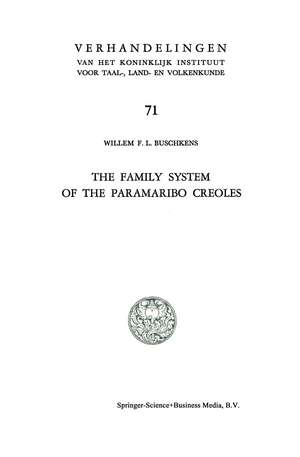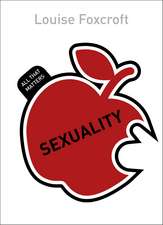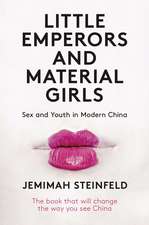The Family System of the Paramaribo Creoles: Verhandelingen Van Het Koninklijk Instituut Voor Taal-, Land- En Volkenkunde, cartea 71
Autor Willem F. L. Buschkensen Limba Engleză Paperback – 6 oct 2012
Din seria Verhandelingen Van Het Koninklijk Instituut Voor Taal-, Land- En Volkenkunde
- 15%
 Preț: 604.71 lei
Preț: 604.71 lei -
 Preț: 386.61 lei
Preț: 386.61 lei -
 Preț: 376.80 lei
Preț: 376.80 lei -
 Preț: 397.59 lei
Preț: 397.59 lei -
 Preț: 376.80 lei
Preț: 376.80 lei -
 Preț: 392.60 lei
Preț: 392.60 lei -
 Preț: 376.96 lei
Preț: 376.96 lei -
 Preț: 377.18 lei
Preț: 377.18 lei -
 Preț: 383.12 lei
Preț: 383.12 lei -
 Preț: 382.95 lei
Preț: 382.95 lei -
 Preț: 378.71 lei
Preț: 378.71 lei -
 Preț: 382.57 lei
Preț: 382.57 lei -
 Preț: 387.38 lei
Preț: 387.38 lei -
 Preț: 390.63 lei
Preț: 390.63 lei -
 Preț: 383.12 lei
Preț: 383.12 lei -
 Preț: 403.75 lei
Preț: 403.75 lei -
 Preț: 392.97 lei
Preț: 392.97 lei -
 Preț: 386.81 lei
Preț: 386.81 lei -
 Preț: 392.21 lei
Preț: 392.21 lei -
 Preț: 385.25 lei
Preț: 385.25 lei -
 Preț: 384.48 lei
Preț: 384.48 lei -
 Preț: 396.40 lei
Preț: 396.40 lei -
 Preț: 383.12 lei
Preț: 383.12 lei - 23%
 Preț: 706.84 lei
Preț: 706.84 lei -
 Preț: 380.84 lei
Preț: 380.84 lei -
 Preț: 383.12 lei
Preț: 383.12 lei -
 Preț: 397.38 lei
Preț: 397.38 lei -
 Preț: 387.96 lei
Preț: 387.96 lei -
 Preț: 403.37 lei
Preț: 403.37 lei -
 Preț: 385.84 lei
Preț: 385.84 lei -
 Preț: 389.31 lei
Preț: 389.31 lei -
 Preț: 398.53 lei
Preț: 398.53 lei -
 Preț: 392.97 lei
Preț: 392.97 lei -
 Preț: 390.46 lei
Preț: 390.46 lei -
 Preț: 113.27 lei
Preț: 113.27 lei -
 Preț: 113.27 lei
Preț: 113.27 lei -
 Preț: 113.27 lei
Preț: 113.27 lei -
 Preț: 107.65 lei
Preț: 107.65 lei -
 Preț: 117.98 lei
Preț: 117.98 lei -
 Preț: 113.27 lei
Preț: 113.27 lei -
 Preț: 57.59 lei
Preț: 57.59 lei -
 Preț: 130.22 lei
Preț: 130.22 lei -
 Preț: 130.22 lei
Preț: 130.22 lei -
 Preț: 105.69 lei
Preț: 105.69 lei -
 Preț: 113.27 lei
Preț: 113.27 lei -
 Preț: 101.96 lei
Preț: 101.96 lei -
 Preț: 90.66 lei
Preț: 90.66 lei
Preț: 391.02 lei
Nou
Puncte Express: 587
Preț estimativ în valută:
74.82€ • 78.33$ • 61.91£
74.82€ • 78.33$ • 61.91£
Carte tipărită la comandă
Livrare economică 05-19 aprilie
Preluare comenzi: 021 569.72.76
Specificații
ISBN-13: 9789401177863
ISBN-10: 9401177864
Pagini: 348
Ilustrații: XV, 325 p. 6 illus.
Dimensiuni: 155 x 235 x 18 mm
Greutate: 0.49 kg
Ediția:Softcover reprint of the original 1st ed. 1981
Editura: SPRINGER NETHERLANDS
Colecția Springer
Seria Verhandelingen Van Het Koninklijk Instituut Voor Taal-, Land- En Volkenkunde
Locul publicării:Dordrecht, Netherlands
ISBN-10: 9401177864
Pagini: 348
Ilustrații: XV, 325 p. 6 illus.
Dimensiuni: 155 x 235 x 18 mm
Greutate: 0.49 kg
Ediția:Softcover reprint of the original 1st ed. 1981
Editura: SPRINGER NETHERLANDS
Colecția Springer
Seria Verhandelingen Van Het Koninklijk Instituut Voor Taal-, Land- En Volkenkunde
Locul publicării:Dordrecht, Netherlands
Public țintă
ResearchCuprins
1. Introduction.- 1.1. General.- 1.2. Social Research in Surinam.- 1.3. The West Indian Family System.- 1.4. The Situation in Surinam.- 2. Surinam.- 2.1. Geography.- 2.2. Political Development.- 2.3. History of Agriculture.- 2.4. Other Sectors of the Economy.- 2.5. The Demographic Situation.- 2.6. The Creoles.- 3. The Research.- 3.1. The Place of Research.- 3.2. The Method of Research.- 4. The Initial Period of Settlement of the Plantation Colony Up to the Abolition of the Slave Trade in 1808.- 4.1. Population.- 4.2. The Organization of Slavery.- 4.3. The Family Life of the Slaves.- 4.4. Government, Private and Church Interference in the Family Life of Slaves.- 4.5. The Family Life of the Masters and the free Mulattoes and free Negroes.- 5. The Period from 1808 Up to Emancipation in 1863.- 5.1. General.- 5.2. The Dwindling Slave Force.- 5.3. Measures for the Improvement of the Slaves’ Family Life and Reproductive Capacity.- 5.4. Man-Woman Relationships among the Slaves.- 5.5. The Family Life of the Free Population.- 6. The Post-Emancipation Period.- 6.1. General.- 6.2. The Rural Exodus of the Creole Population.- 6.3. The Creole as Gold Digger and Balata Bleeder.- 6.4. Other Creole Occupations.- 6.5. Unemployment.- 6.6. The post-Emancipation Family System.- 7. The Situation after World War II.- 7.1. General.- 7.2. Characteristic Features of the Sample Population.- 7.3. The Present Socio-Economic Conditions.- 8. The Nature of Unions and the Household Structure.- 8.1. General.- 8.2. Alternative Unions between Men and Women.- 8.3. The Structure of Households.- 8.4. Unmarried Women and Women not Living in Concubinage and their Children.- 9. The Functioning of the Family System.- 9.1. General.- 9.2. The Desire for Children.- 9.3. Birth Control.- 9.4. Traditional Practicesin Connection with Pregnancy and Childbirth.- 9.5. Childhood.- 9.6. Adulthood.- 9.7. Old Age.- 9.8. Death.- 10. Final Remarks.- 10.1. General.- 10.2. The West Indian Family System of Paramaribo as an Adaptation Model.- Appendix 1. Letter of Introduction explaining the Nature of the Research.- Appendix 2. The Questionnaire.- Appendix 3. Tables A–R not inserted in the text.- Appendix 4. Interview Scheme B.O.G. Sample.- Biblography.







